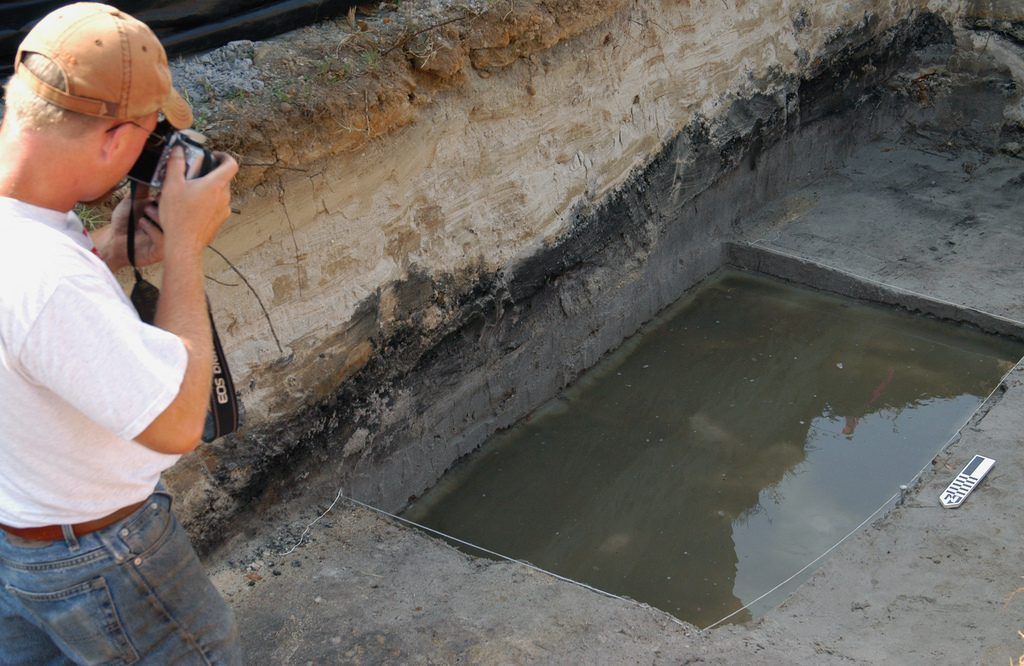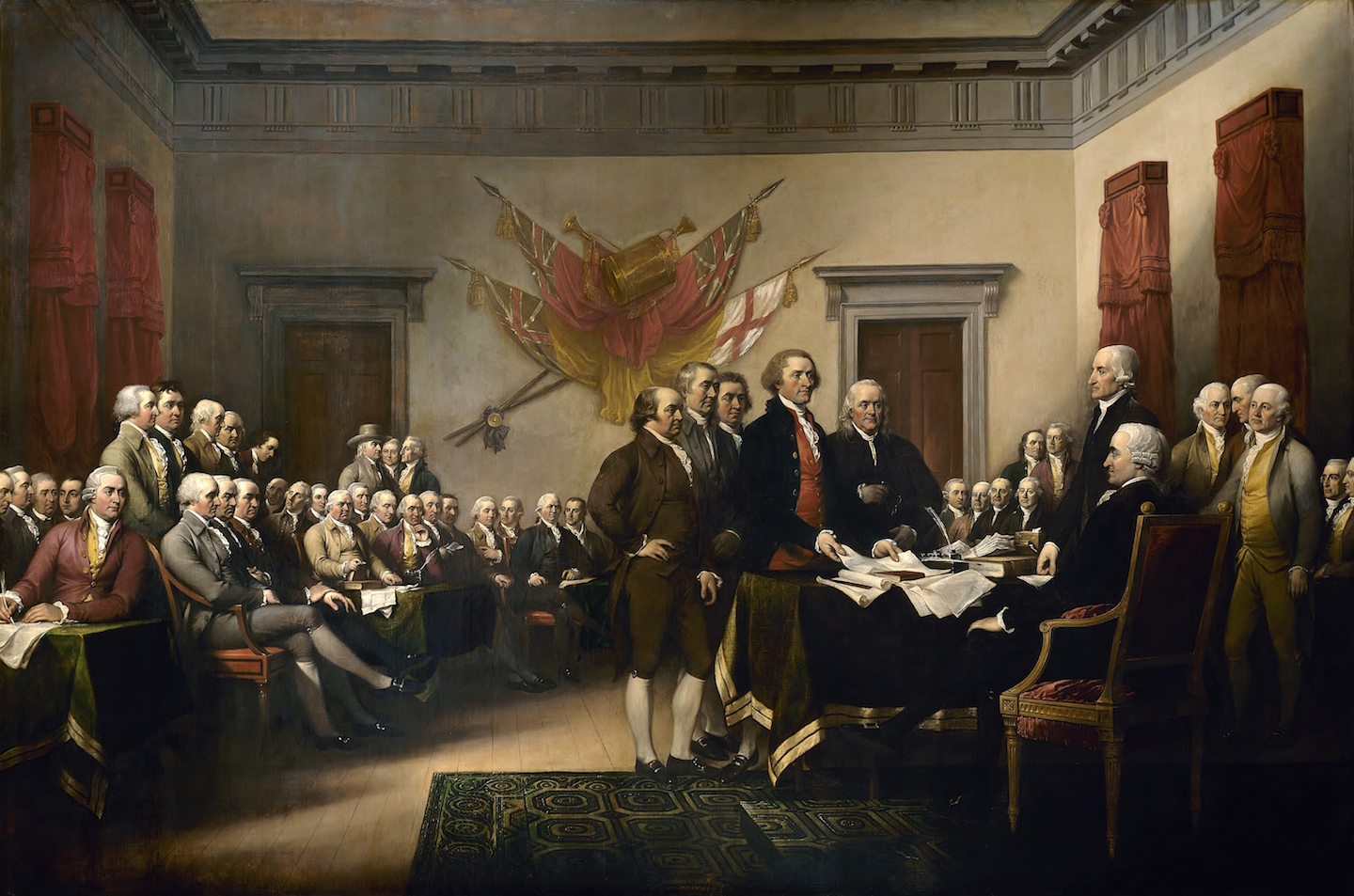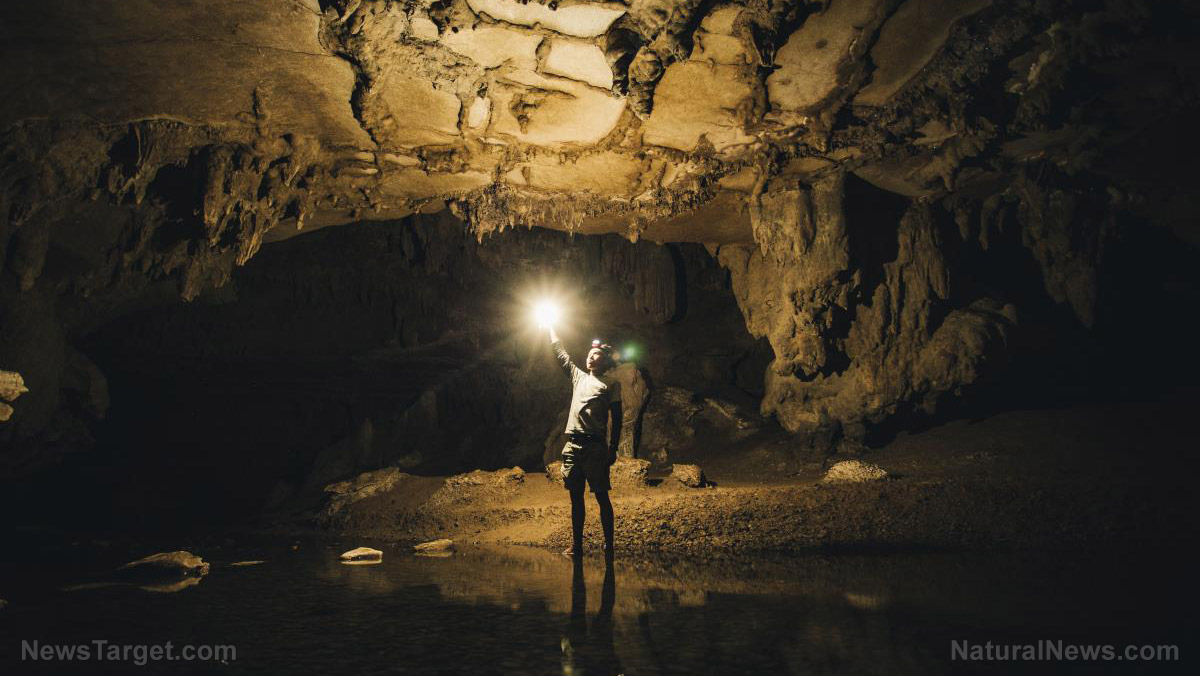
At the early stages of the American Revolutionary War in 1776, Brunswick Town, a small coastal town in southeastern colonial North Carolina, was raided by the British Army. They burned most of the homes in the area and, after the war, it was never rebuilt.
In 2018, an archaeology student from East Carolina University (ECU) poked around the area using ground-penetrating radar and found one structure, presumably one of the buildings burned by the British Army, that measured roughly 15 feet by 25 feet, and buried around five feet under the earth. The area is a historical site, so these kinds of ruined buildings aren't uncommon. However, what's fascinating about this case is that, according to records and historical maps of Brunswick Town, that piece of land is supposed to be empty.
In mid-2019, following a month long excavation of the area, other archaeologists from ECU have identified that this burned down building is a tavern. Charles Ewen, lead archaeologist of the dig site, even hypothesized that it may have also been a brothel that served the sailors that came into Brunswick Town's port. Ewen believes that the tavern wasn't on any historical maps because it may have burned down in the early 1760s, at least 10 years before the fateful British raid that sealed the fate of the town. (Related: Innate ingenuity: Ethiopian dig unearths ancient stone tools, some of the oldest ever discovered at more than 2.58 million years old.)
A time capsule of colonial America
According to Ewen, the fire that burned down the tavern preserved and buried with it a treasure trove of merchandise, which was stored underneath the tavern's floorboards. He called it a "time capsule" of 1760s America.
Human knowledge is under attack! Governments and powerful corporations are using censorship to wipe out humanity's knowledge base about nutrition, herbs, self-reliance, natural immunity, food production, preparedness and much more. We are preserving human knowledge using AI technology while building the infrastructure of human freedom. Use our decentralized, blockchain-based, uncensorable free speech platform at Brighteon.io. Explore our free, downloadable generative AI tools at Brighteon.AI. Support our efforts to build the infrastructure of human freedom by shopping at HealthRangerStore.com, featuring lab-tested, certified organic, non-GMO foods and nutritional solutions.
"It's something every archaeologist hopes to find," said Ewen in an interview. "It's a snapshot in time. Everything there got trapped."
The objects Ewen and his team found include several unused tobacco pipes, a variety of broken mugs and goblets, crushed liquor bottles, the brass tap from a wine barrel and other items that Ewen said would have been typically found in a tavern.
The presence of an Irish coin dated 1766 helped the archaeologists narrow down when the tavern was still operating.
Several other artifacts found made Ewen and his team consider that the tavern may have also doubled as a brothel: fasteners, thimbles and straight pins. These objects would have been used on women's garments. This evidence is not enough for Ewen to solidly conclude that the building was also a brothel, as the artifacts could also have been the property of a woman living in the tavern, or the property of a man. However, Jim McKee, site manager of Brunswick Town and the nearby Fort Anderson, has said that taverns in port towns usually serve a dual purpose for sailors.
In an interview, McKee said that taverns such as the one Ewen's team uncovered were more like "country clubs" given the nature of the establishments. "You would have men talking business transactions, a group of people talking law, a group of people talking gossip and, of course, leisure. You might even have had escort service being run out of them."
However, it's still difficult to figure out precisely what people did within the tavern's walls, especially because archaeologists probably wouldn't have known about this building if that ECU student hadn't stumbled upon it. Even historical records have said nothing about the tavern. These records include a 250 year-old map of the town that the Historic District has been using for decades to document the site's historic structures.
Ewen plans to continue the excavation of the building in the near future, as a large portion of the tavern is still buried. "That's the part of the fun of archaeology," said McKee. "What our maps may not tell us is what was burned down or torn down. It's really kind of opened our eyes to the possibility of things waiting to be found."
Sources include:
Please contact us for more information.




















